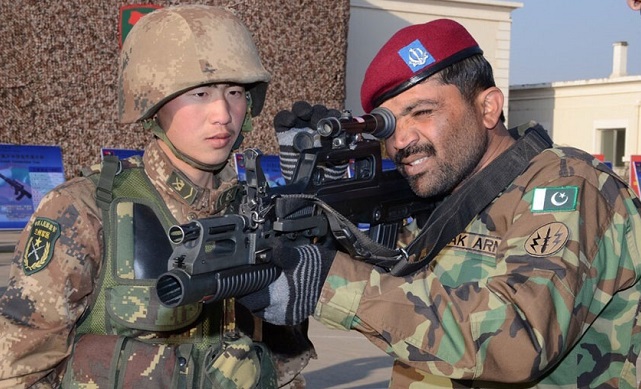China, Pakistan Team Up But Where are India's Rafales?

NEW DELHI: The clouds seem to be settling over the Rafale fighter deal, with Defence Minister Manohar Parrikar still giving conflicting versions of the status. From an assurance that the discussions were in an advanced stage and the deal was to be clinched “quite soon” he has shifted within weeks to a written response to a question in Parliament saying that discussions were still going on, and did not indicate a time frame.
This despite serious alarm bells rung by Vice Chief of the Indian Air Force Air Marshal B.S.Dhanoa who said at a press conference, “Our numbers are not adequate to fully execute an air campaign in a two-front scenario. Probability of a two-front scenario is an appreciation which you need to do. But are the numbers adequate? No. The squadrons are winding down.”
“We have conveyed our concerns. The government is seized of the problem. It signed the 36 aircraft (Rafale) on G2G basis because of the depletion in squadron numbers,” the IAF Chief said.
Two years ago National Security Advisor Ajit Doval had also referred to the possibility of two front war at a media conclave with, “India has two neighbours, both nuclear powers (which) have a strategic relationship and a shared adversarial view of India.” At that time Doval had spoken of “economic interdependence” as the weapon to build peace in South Asia.
This is not to be seen as the government completes two terms in office, instead tensions between India and China have suddenly spiked over Pakistan. Beijing opposed India’s proposal to sanction JeM chief Masood Azhar in the United Nations; and more recently has sought to block its entry into the Nuclear Suppliers Group by maintaining that both India and Pakistan should be made members, and not the one over the other. A US Pentagon report has spoken of China’s hostility towards India, with the current bonhomie between Beijing and Islamabad raising concerns in New Delhi.
The Indian military works strategically to prepare for wars and for long has been clamouring for the weaponry required to stall a two front offensive. The Rafale deal, now stuck in never ending negotiations for over a year, is not likely to open the doors to this bounty with the military getting used to a “long delay” in meeting its hardware requirements.
The politicisation of procurements has further set the clock back, as the AgustaWestland decibels have sent out a clear and loud message to the military top brass: do not sign any order, you do not know when you will have to pay for it. The high voltage debate in Parliament and outside on the AgustaWestland deal in which former IAF chief Tyagi is being questioned, sources said, will slow down defence procurements at all levels. As a retired officer said, “who will now sign the bottom line, no official will as he might be hauled up even after he has retired by another government of the day for kickbacks that he might know nothing of.” The Defence Ministers casual reference to the former IAF chief in Parliament has been seen as “insulting” by the men in uniform with concern running high about the wilful targeting of former chiefs.
Dassault had secured the deal for 126 aircraft, and after talks with the new Modi government the French were confident that the deal would be closed by the end of 2014. Instead it got stuck in price negotiations and guarantee clauses with PM Modi making the grand announcement in 2015 of procuring 36 Rafale in ready to fly condition. This dramatic gesture was hailed by both the French and Indian strategic establishment although the weeks confirmed the initial suspicion that this was not backed by a substantive assessment. Over a year later the Rafale deal remains bogged in a series of issues to do with price and legalities, while the IAF resigns itself to working with 33 squadrons instead of the sanctioned 42. And to the disturbing fact that the serviceability of the existing aircraft is poor, in that of every 100 aircraft only 55 are available at any point in time. The rest are under service.



